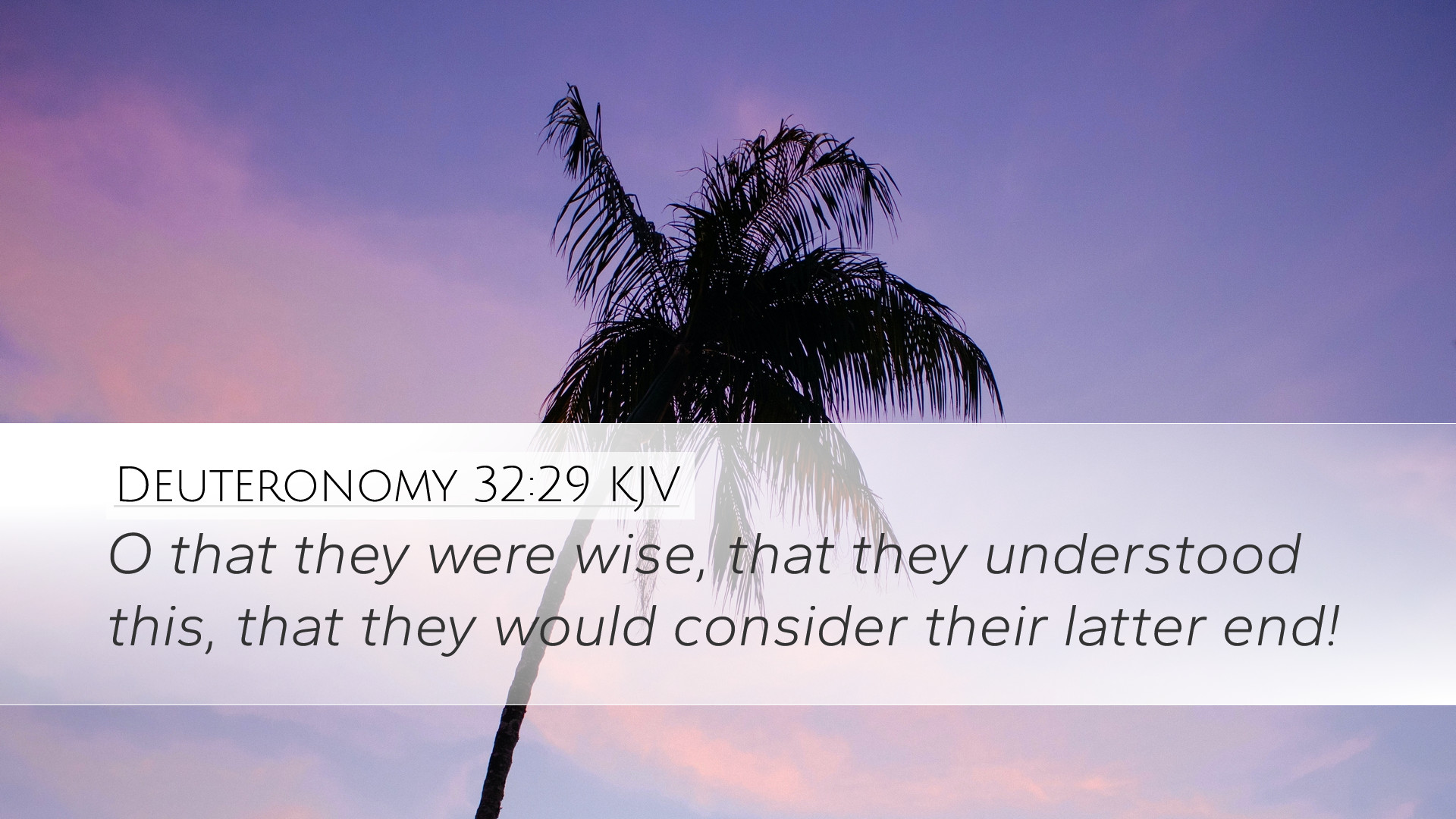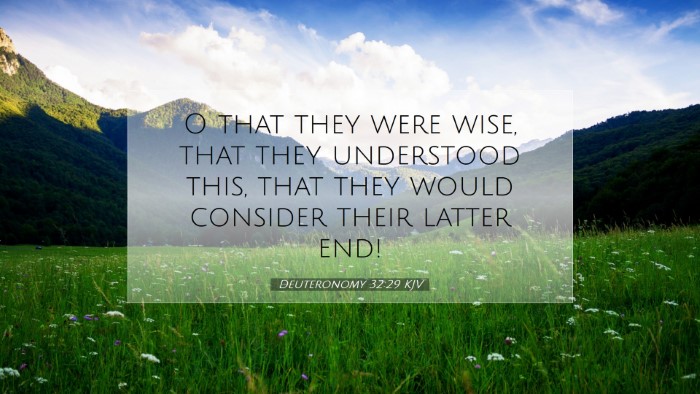Deuteronomy 32:29 - A Commentary
Verse: "O that they were wise, that they understood this, that they would consider their latter end!"
1. Contextual Background
Deuteronomy 32 features the song of Moses, a poetic recitation that encapsulates the history and fate of Israel. This chapter serves as a culmination of Moses’ speeches throughout the Pentateuch. Here, Moses poignantly reflects on the nature of Israel's relationship with God, emphasizing the consequences of disobedience and the importance of wisdom.
2. Exegetical Analysis
Moses expresses a deep desire for the Israelites to possess wisdom. The term wisdom in this context relates not merely to knowledge but to a profound understanding of God's ways and an awareness of their own moral and spiritual condition. The phrase "consider their latter end" suggests an appeal to foresight, urging the people to contemplate the consequences of their actions in light of their covenant relationship with God.
2.1 The Importance of Wisdom
Matthew Henry emphasizes that wisdom is the principal thing; it is necessary for any people to thrive spiritually and ethically. He notes that true wisdom involves discerning God's intentions and responding appropriately in faith and obedience.
2.2 Understanding and Consideration
Albert Barnes points out that the lack of understanding leads to a failure in recognizing the seriousness of their situation. The call to 'understand' and 'consider' their latter end stresses that awareness of one's spiritual condition is crucial for repentance and renewal. Barnes notes that this understanding is often neglected, leading to devastating spiritual consequences.
2.3 The Latter End
Adam Clarke connects the concept of the 'latter end' with eschatological implications. He suggests that considering their eventual fate should encourage the people to align their lives with God's commandments. Clarke highlights that the wisdom Moses desires is not merely for the moment but has eternal consequences.
3. Theological Reflections
This verse encourages a reflective posture in spiritual life. It calls believers today to engage in self-examination and awareness of the trajectory of their lives.
3.1 The Call for Repentance
The exhortation recorded in Deuteronomy 32:29 resonates with the New Testament's emphasis on repentance. Just as Moses calls Israel to consider their actions, Christians are urged to reflect upon their lives in light of God's grace and the looming reality of judgment.
3.2 Collective Responsibility
This verse highlights a community aspect of wisdom. Leaders, such as pastors and theologians, carry the responsibility to guide their congregations toward this understanding. It promotes the idea that corporate wisdom can lead a community away from folly towards God.
3.3 Wisdom in the New Covenant
In the light of the New Testament, wisdom is fulfilled in Christ. Believers are called to seek the mind of Christ, recognizing that true understanding comes from union with Him. This passage could be seen as a forerunner of the spiritual insight available through the Holy Spirit.
4. Practical Applications for Today
As this verse invites deep reflection on wisdom, understanding, and consequences, it carries practical implications for educators, leaders, and individual believers alike.
- Encourage Spiritual Discernment: Leaders should foster environments that promote understanding and wisdom through prayer, study of the Scriptures, and reflections on personal conduct.
- Teach the Weight of Choices: Educators must emphasize the importance of choices today in light of their eternal significance, paralleling the biblical narrative with contemporary life.
- Promote Accountability: Within faith communities, believers should be encouraged to hold one another accountable in pursuing righteous living and engaged with the community toward collective wisdom.
5. Conclusion
Deuteronomy 32:29 serves as a sobering reminder of the necessity for wisdom and understanding in the life of the believer. It is a call not only for personal reflection but also for communal engagement, urging the faithful to contemplate their choices and their ultimate destination. As they pursue this wisdom, they should find encouragement in the grace and forgiveness offered through Christ, the ultimate source of wisdom.


